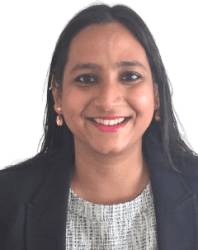- HOME
HOME
- SERVICES
SERVICES
- Study Abroad
Study Abroad
- Study Abroad Counseling
- Parent Counseling
- Test Prep
- College Selection
- Essay Editing and Applications
- Interview Prep
- Post Interview Essay
- Re-applicant Essay
- Resume Review
- Post Result Strategy
- Scholarship Application
- Waitlist Letter
- Letter of Recommendation (LOR)
- Study Abroad Scholarships
- IBDP Diploma Essays
- Essay tutorial
- Career Guidance
- Packages
- FAQ
- Study In India
- Skill Enhancement
- Study Abroad
- DEGREES
- TESTIMONIALS
- TEAM
- OFFERS
- RESOURCES
RESOURCES
- Free Tools
- Undergrad (8th – 12th Grade)
- Masters
- MBA
- M.Phil / Ph.D
M.Phil / Ph.D
- Executive Education
Executive Education
- Career Guidance
- Top Global Universities
- Top MBA Programs
- Admission Officers Insights
- Books
- EVENTS
EVENTS
- FINANCE YOUR EDUCATION
FINANCE YOUR EDUCATION
- MEDIA
- HOME
- SERVICES
- Study Abroad
- Study Abroad Counseling
- Parent Counseling
- Test Prep
- College Selection
- Essay Editing and Applications
- IBDP Diploma Essays
- Essay tutorial
- Interview Prep
- Post Interview Essay
- Re-applicant Essay
- Resume Review
- Post Result Strategy
- Scholarship Application
- Waitlist Letter
- Letter of Recommendation (LOR)
- Study Abroad Scholarships
- Career Guidance
- Packages
- FAQ
- Study In India
- Skill Enhancement
- Study Abroad
- DEGREES
- TESTIMONIALS
- TEAM
- OFFERS
- RESOURCES
- EVENTS
- FINANCE YOUR EDUCATION
- MEDIA
Don't let the lockdown lock you down!
We know that the present pandemic can be difficult. However, this is a great time to reflect on your study abroad and career goals and plan ahead.
We have made our services accessible at reduced prices in this lockdown. ReachIvy.com Experts are here to help you!
International General Certificate of Secondary Education (IGCSE)
The IGCSE is a two-year academic program designed for students in grades 9 and 10 (aged 14 -16). It is an academically rigorous, internationally used, specialized, English language curriculum that is offered to students to prepare them for the International Baccalaureate, A-levels or other equivalent programs. It is recognized by academic institutions and employers around the world and is considered by many institutions as equivalent to the standard GCSE.
Program Overview
The IGCSE curriculum offers a variety of routes for learners with a wide range of abilities. There are over 70 subjects available in the IGCSE Program, including 30 languages, and schools can offer them in any combination. Students typically sit for seven to nine subjects in one session.
The core subjects are First Language, Second Language, Mathematics and Sciences (Physics, Biology, Chemistry). Students can also choose other subjects ranging from Social Sciences (commonly Accounting, Business Studies, Economics, Sociology) to Arts & Technology (commonly Computer Studies, Information & Communication Technology (ICT), Art & Design).
IGCSE provides a broad and flexible study program. Most IGCSE subjects offer a choice of tiered examinations: Core or Extended papers, and Foundation or Higher papers. This is designed to make IGCSE suitable for students with varying levels of ability.
It is a qualification based on individual subjects of study, which means that one receives an “IGCSE” qualification for each subject one takes.
Assessment
IGCSE assessment takes place at the end of the course and can include written, oral, coursework and practical assessment. This broadens opportunities for students to demonstrate their learning.
The IGCSE follows a predominantly exam-based assessment, meaning they are not actual certified “courses”, but rather exams that test knowledge in individual subjects.
Grades are benchmarked using eight internationally recognized grades, A* to G, which have clear guidelines to explain the standard of achievement for each grade.
Cambridge IGCSE examination sessions occur twice a year, in June and November. Results are issued in August and January.
How does it compare to other qualifications?
The IGCSE program is a comprehensive learning platform. IGCSEs are known for developing vital educational knowledge, understanding and skills. In addition to academic excellence, it encourages independent learning, inquiry, and intercultural understanding to keep pace with educational developments and trends. It strives to force the students to probe further into concepts rather than just have them simply state facts.
The program fosters a positive attitude to learning and inculcates a broad range of attitudes and skills that prepare students for higher education.
Pros & Cons
Benefits of the IGCSE program include:
- There are over 70 subjects available and the program allows you to choose your study subjects and make a combination of your own based on your interests.
- IGCSE helps improve performance by developing skills in creative thinking, enquiry and problem solving. It is the perfect springboard to advanced study.
- Development of learner knowledge, understanding and skills in:
- Subject content
- Applying knowledge and understanding to new as well as unfamiliar situations
- Intellectual enquiry
- Flexibility and responsiveness to change
- Working and communicating in English
- Influencing outcomes
- Cultural awareness.
However:
- Students enrolled in the IGCSE do tend to pay higher fees compared to other Indian qualifications.
- Some students struggle with the level of organization and time management required to balance both the academic and non-academic commitment.
- Every student learns differently, especially if from a young age they have been part of one style or system and are now asked to submerge themselves in another. For some, the transition is seamless or minimal, however for those who are more comfortable with the rote learning methodology it may be difficult to excel in this environment.
Conclusion
The IGCSE is an integrated learning experience – not only does it emphasize academic strength in a range of academic subjects, but also fosters positive attitude towards learning and responsibility towards your community.
MEET OUR EXPERTS

Garima Rana
MPP - University of Oxford
B.Sc.,Indira Gandhi Delhi Technical University

Ananya Jain
B.Com, Delhi University
M.Fin, Cambridge Judge Business School

Kovid Gupta
MBA, Cornell University
BBA, BS, BA, The University of Texas at Austin

Archana Rao
MBA, Darden University of Virgina
B.Tech, University of Pune

Suman Barua
M.Ed, Harvard University
B.E, Mumbai University

Madhav Pathak
MBA, Indian School of Business
MS, Carnegie Mellon University

Gaargi Desai
MS, Harvard University
BA, Tulane University

Ameya Bhangle
MBA, Harvard Business School
B.Sc.(IT), St. Xavier’s College, Mumbai

Niyati Dave
MA, Smith College, Northampton
Fellowship, Urban Studies/Affairs

Aashay Doshi
MBA, Tepper School of Business Carnegie Mellon University
B.Sc., University of Maryland College Park
OUR STUDENTS HAVE REACHED







